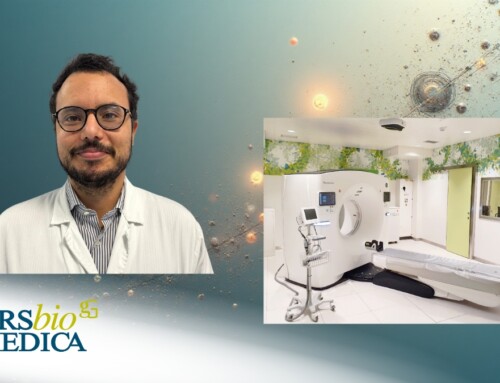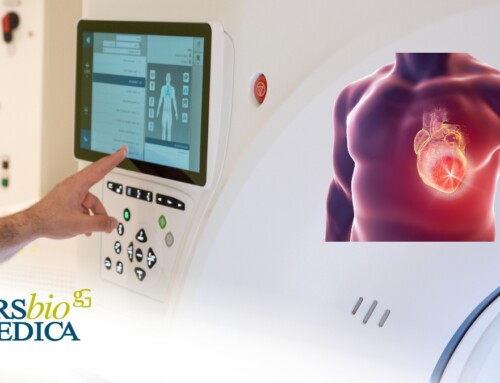
Articolo del 12/12/2024
The Gut: Our “Second Brain”
The gut is often referred to as our “second brain,” a vital organ not only for digestion but also for maintaining the overall balance of our body. Its health significantly affects both our physical and mental well-being. As a result, many of us turn to search engines with questions about gut health.
Professor Italo De Vitis, gastroenterologist at Ars Biomedica Clinic, addresses five of the most frequently asked questions about gut health:
1. What are the signs of an unhealthy gut?
Sudden and unexplained changes in bowel habits can indicate an issue, such as:
- Changes in bowel movements (sudden onset of constipation or diarrhea lasting 2-3 weeks or more, presence of mucus or blood in stools).
- Nausea or aversion to food.
- Vomiting or dry heaves.
These symptoms warrant consulting a gastroenterologist for a thorough evaluation.
2. What role do gut bacteria and dietary fiber play in health, and why do we sometimes feel bloated?
The microbiota—a community of billions of beneficial bacteria living in our gut—plays a critical role in maintaining the intestinal barrier. This “customs checkpoint” of the gut helps decide what nutrients to absorb and what to reject.
Probiotics help preserve the integrity of the gut barrier, promoting balance, but they work best alongside a healthy diet. Regular consumption of fruits and vegetables (at least five servings a day) and limiting processed foods, sweeteners, sugary drinks, and red meat is essential.
An imbalance in the microbiota (dysbiosis) can increase harmful bacteria, causing bloating, discomfort, and abdominal pain. Dietary fiber (a prebiotic) and probiotics, particularly lactobacilli and bifidobacteria, help maintain a healthy microbiota and, by extension, a healthy body.
While personalized microbiota therapies are not yet widely available, adopting a healthy lifestyle—including exercise, proper hydration, mindful eating, and food choices—is crucial for sustaining a balanced gut microbiome and overall well-being.
3. How can I prevent conditions like acid reflux or heartburn?
Preventing reflux symptoms involves maintaining a healthy lifestyle and diet:
- Engage in regular physical activity, ideally aerobic exercises. You don’t need a gym; brisk walking for 45-60 minutes daily or at least 3-4 times a week can suffice.
- Stick to regular meal times, eat slowly, chew thoroughly, and stay hydrated.
- Limit irritants or acid-producing substances like coffee, alcohol, citrus fruits, and chocolate to prevent or manage symptoms of gastroesophageal reflux.
Taking these steps can help protect against reflux and reduce discomfort when symptoms arise.
4. When is a colonoscopy or other diagnostic test necessary?
Scheduling a colonoscopy should always begin with a discussion with your primary care physician or a consultation with a gastroenterologist.
Persistent changes in bowel habits, such as sudden onset diarrhea or constipation, or the appearance of mucus or blood in stools, are warning signs that should be promptly evaluated by a healthcare professional. These symptoms may indicate the need for further diagnostic procedures, such as a colonoscopy, to identify potential underlying issues.
5. Can food intolerances cause chronic gastrointestinal problems?
The term “food intolerance” often creates confusion. It refers to adverse reactions to food that are not immune-mediated but are instead due to individual sensitivities, such as enzymatic deficiencies, which are often challenging to document. Many tests marketed for diagnosing food intolerances lack scientific validity.
The only scientifically verifiable intolerances are:
- Lactose intolerance, diagnosed via a breath test.
- Nickel intolerance, identified through skin tests.
Another frequently discussed condition is gluten intolerance, or celiac disease, which is not an intolerance in the traditional sense but an autoimmune disorder triggered by gluten. Referring to it as an “intolerance” is a misnomer, though commonly accepted in everyday language.
It is essential to distinguish intolerances from allergies, which are immune responses to food substances. Allergies can often—though not always—be scientifically documented.
An unrecognized food intolerance can lead to physical and psychological discomfort, nutritional deficiencies, and, in some cases, extra-intestinal symptoms. These issues can often improve once the offending substance is identified and removed from the diet.
To arrive at an accurate diagnosis, it is advisable to consult with an allergist or gastroenterologist for a thorough evaluation and confirmation of suspected food intolerances.






